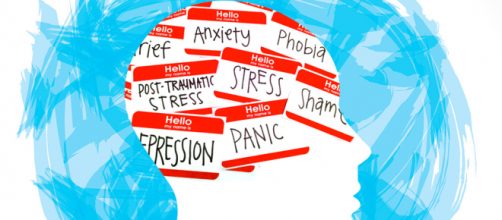Mental illnesses are common and chances are that you've either experienced them yourself or know someone who has with the now somewhat infamous statistic of 1 in 4 people who will experience a mental illness at some point during their life.
This rate is likely to decrease dramatically, however, when considering those from South Asian backgrounds who have been through similar experiences.
Mental illnesses hidden by Asians for varying reasons
Attitudes towards mental health have always been regressive, with many suggesting that it is just something that can be snapped out of or a phase which a young person (usually) is going through, but of course, we now know this is simply not the case.
Mental illnesses are often hidden by Asians for varying reasons including shame, social ostracisation from the community, damaged marriage prospects and offensive and passive labelling as "crazy" in a society in which reputation is a very important part of life.
Due to the stigma attached, many don't get the help or treatment they need and as a result, get stuck in a vicious cycle which could have been prevented entirely. This is how mental illness becomes life-threatening for many South Asians.
The pain only seen as physical
The vast majority of languages from the Indian subcontinent don't even have vocabulary relating to mental health since historically, pain was only seen as physical and something which could be fixed by home remedies, medicine and as a last resort by visiting the doctor.
Although the subject remains largely Taboo in South Asian cultures, when experiences are shared, they are often met with responses which tend to do more damage than good such as the mentality that they are karmic retribution, black magic, punishment for a past life, the casting of an evil eye or that it is simply "the will of God."
I ask those who read this and believe in such reasons to consider whether they would react the same way when someone is diagnosed with a physical illness and I believe they most likely would not. It is important that mental illnesses are taken just as seriously. They need love, dignity, treatment and care too.
Therefore, it is time that we Asians speak up when we're experiencing poor mental health to ensure that we can get the appropriate help.
While talking to someone in a place of worship such as a Temple, Gurdwara or Mosque can be effective and may make you feel better, it is important that you recognise when you may have a mental illness and seek out professional advice.
There are some services throughout the UK who take your cultural sensitivities into consideration and deal with them appropriately including:
- South Asian Health Foundation - Birmingham
- South Asian Community Mental Health Service (Amardeep) - London
- Awaaz - Nottingham
- Naye Subah - Bradford


